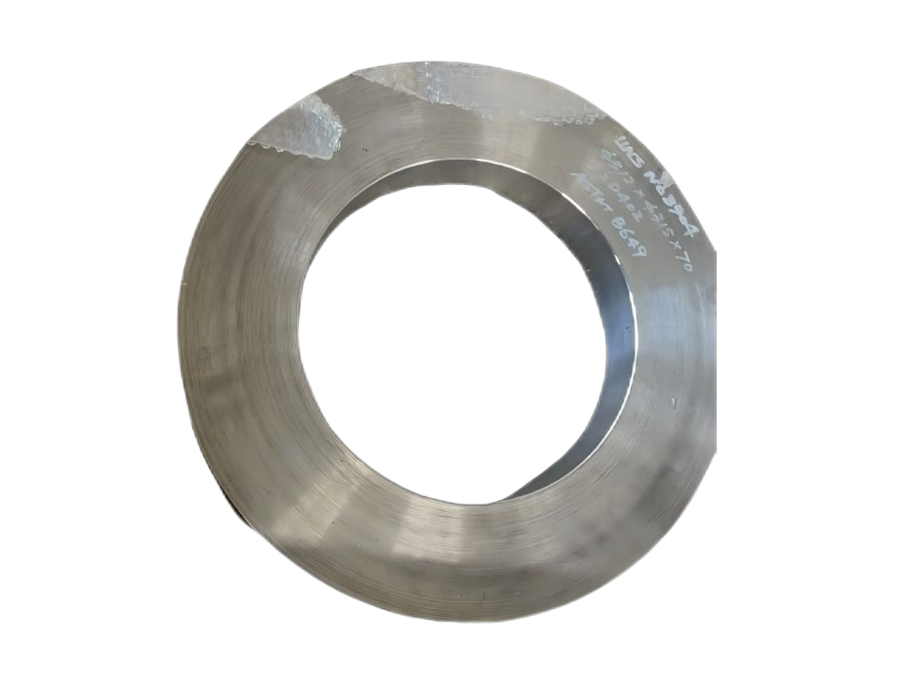Exploring the Diverse Applications of Hastelloy Forgings in Today's Metallurgical Industry
Release time:
2024-05-31 16:41
**Introduction**
In the realm of metallurgy, the demand for high-quality, durable materials is ever-present. One such material that has gained widespread recognition for its exceptional properties is Hastelloy. Known for its superior corrosion resistance and high strength, Hastelloy forgings have become a staple in various industries, from aerospace to chemical processing.

**What is Hastelloy?**
Hastelloy is a trademarked name for a family of high-performance alloys that are primarily composed of nickel, molybdenum, and chromium. These alloys are renowned for their excellent resistance to corrosion, making them ideal for use in harsh environments where traditional metals would fail.
**The Versatility of Hastelloy Forgings**
Hastelloy forgings are highly versatile components that can be customized to suit the specific needs of different industries. From complex aerospace components to intricate chemical processing equipment, these forgings are tailored to withstand extreme conditions while maintaining their structural integrity.
**Applications of Hastelloy Forgings**
1. *Aerospace Industry*: In the aerospace industry, where components are subjected to high temperatures and corrosive environments, Hastelloy forgings are used for engine components, exhaust systems, and landing gear.
2. *Chemical Processing*: In chemical processing plants, where exposure to corrosive chemicals is a constant threat, Hastelloy forgings are used for reactors, heat exchangers, and piping systems.
3. *Oil and Gas Industry*: In the oil and gas industry, where equipment is exposed to corrosive fluids and high pressures, Hastelloy forgings are used for valves, pumps, and wellhead components.
4. *Power Generation*: In power generation plants, where high temperatures and pressure fluctuations are common, Hastelloy forgings are used for turbine blades, boiler tubes, and heat exchangers.
**Benefits of Using Hastelloy Forgings**
- **Corrosion Resistance**: Hastelloy forgings offer exceptional resistance to a wide range of corrosive chemicals and environments, making them ideal for use in harsh conditions.
- **High Strength**: Hastelloy forgings exhibit high tensile strength and durability, ensuring long-lasting performance in demanding applications.
- **Customizability**: Hastelloy forgings can be tailored to meet specific design requirements, allowing for the creation of complex and intricate components.
**FAQs**
1. *What is the composition of Hastelloy alloys?*
- Hastelloy alloys are primarily composed of nickel, molybdenum, and chromium, with varying percentages of other elements depending on the specific grade.
2. *What makes Hastelloy forgings resistant to corrosion?*
- The combination of nickel, molybdenum, and chromium in Hastelloy alloys creates a protective oxide layer that enhances their corrosion resistance.
3. *Are Hastelloy forgings cost-effective?*
- While Hastelloy forgings may have a higher upfront cost compared to other materials, their long-term durability and resistance to corrosion make them a cost-effective choice in the long run.
4. *Can Hastelloy forgings be welded?*
- Yes, Hastelloy forgings can be welded using various techniques, ensuring seamless integration into existing systems.
5. *What industries commonly use Hastelloy forgings?*
- Industries such as aerospace, chemical processing, oil and gas, and power generation rely on Hastelloy forgings for their superior performance in demanding environments.
**Conclusion**
In conclusion, the versatility of Hastelloy forgings in modern metallurgy cannot be overstated. With their exceptional corrosion resistance, high strength, and customizability, these components have become indispensable in various industries where durability and performance are paramount. As technology continues to advance, the demand for innovative materials like Hastelloy will only continue to rise, further solidifying their place as a cornerstone of modern metallurgy.
Hastelloy forgings
Related News
The Art and Precision of Forging: Unlocking the Benefits of Precision Forging
2025-06-20
Precision forging is a sophisticated manufacturing process that significantly enhances the mechanical properties and dimensional accuracy of metal components. This technique involves shaping metal into desired forms through the application of high pressure, often at elevated temperatures. Unlike traditional forging methods, precision forging utilizes advanced technology and precise control mechani
Understanding Precision Forging: Key Insights for Professionals in Metalworking
2025-06-18
Precision forging is a sophisticated manufacturing process that involves shaping metal components through the application of controlled pressure and heat. This technique is distinguished by its ability to create parts with exceptional accuracy, consistency, and strength, making it a preferred choice in industries where precision is paramount. One of the primary advantages of precision forging is i
How Monel K500 Forging Enhances Corrosion Resistance in Metal Parts
2025-06-17
Introduction to Monel K500: The Corrosion-Resistant Metal Monel K500 is a nickel-copper alloy renowned for its exceptional corrosion resistance, strength, and versatility. It stands out in various industries, including marine, chemical processing, and aerospace, where metal components must endure harsh environments. This article delves into how the forging process of Monel K500 enhances its corr


